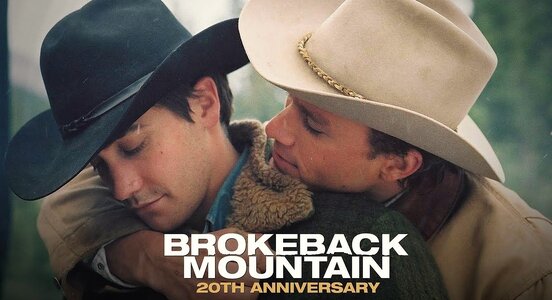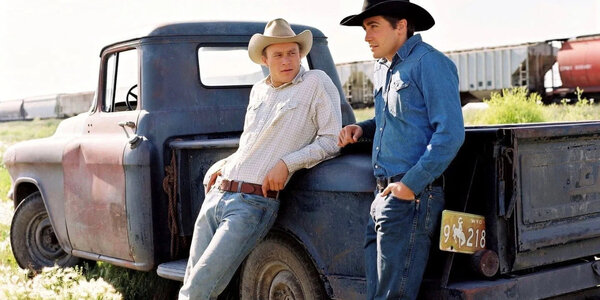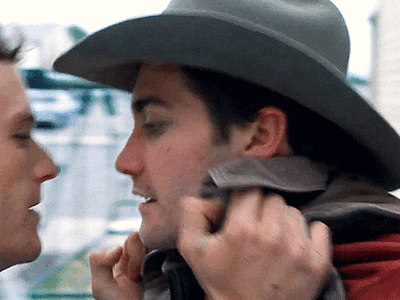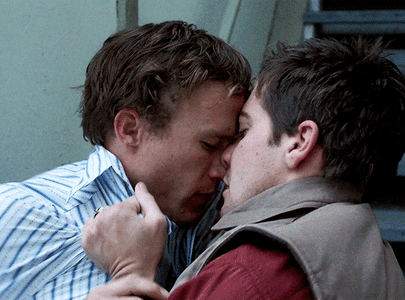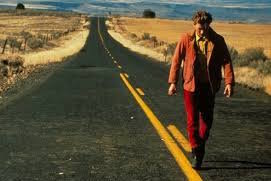The Original Gay Porn Community - Free Gay Movies and Photos, Gay Porn Site Reviews and Adult Gay Forums
-
Welcome To Just Us Boys - The World's Largest Gay Message Board Community
In order to comply with recent US Supreme Court rulings regarding adult content, we will be making changes in the future to require that you log into your account to view adult content on the site.
If you do not have an account, please register.
REGISTER HERE - 100% FREE / We Will Never Sell Your InfoTo register, turn off your VPN; you can re-enable the VPN after registration. You must maintain an active email address on your account: disposable email addresses cannot be used to register.
You are using an out of date browser. It may not display this or other websites correctly.
You should upgrade or use an alternative browser.
You should upgrade or use an alternative browser.
20 Years Brokeback Mountain
- Thread starter pornoboy
- Start date
Is it really 20 years? I'll have to dig out my DVD.
LeicsDom
JUB Addict
Just thinking the same.Is it really 20 years? I'll have to dig out my DVD.
It's true what they say. The older you get the faster time flies
LeicsDom
JUB Addict
There is a British version of a similar story. God's Own CountryMy God they were hot together.
TickTockMan
"Repent, Harlequin!"
I still have never seen it.
CochondeMontreal
Porn Star
I went to see it in an empty theater in Toronto. I remember that the first watch didn't really do it for me, as I felt it was slow... but when I moved to Montreal to go to university, I didn't know anyone, I had no money, no internet and I found a cheap DVD, and I watched it and it grew on me. Today, I'd say it's a really good movie.
PalacePaul
JUB Addict
I didn't watch it on the release, but a few years later on TV I think. I remember a shock of emotions.
Same same but different ( it has sheep )... very good too but with a happy ending.There is a British version of a similar story. God's Own Country
NotHardUp1
What? Me? Really?
I saw it at least twice in Little Rock at a theater showing independent films. I doubt it made it to the small town theaters. The slow pace and still moment reminded me of the careful control used for movies such as 2001: A Space Odyssey, Out of Africa, The Black Stallion, Far from the Madding Crowd, Passion in the Desert, Ladies in Lavender, and Dances with Wolves. The crafting of stillness and slowness to convey the real pace of rural life is a skill that separates art from failure. Real life isn't crammed into 90 minutes of action, conflict, resolution as most films contrive. However, most stories told in cinema survive it, becuase the story is about a crisis, etc.
Brokeback Mountain isn't a story about a crisis, but a lifetime. It was expanded from the play to become a masterful piece of propaganda to further gay rights and equality at a critical moment in American cultural evolution. Gays in urban settings lived a different life than gays away from major cities. Progressives existed everywhere, but the difference in concentration meant almost half the country was left behind as cities became hubs of pluralism, and out from them, reactionary strongholds.
Ang Lee and Annie Proulx were keenly aware of this dichotomy. They were also cognizant of the then focus on causation of homosexuality in men, as well as the microcultural appropriation of gay identity by the minority within gays who were the most visible, most out, but not the most representative. Proulx deftly bypassed all the nonsense about causation and began her tale with adult men. She tacitly asserted that gay is immutable, and at the same time, acknowledged that it isn't always exclusively homosexual, but an aspect of bisexualism, once the default assumption for men in major empires, sometimes backroomed, sometimes not.
The plot employed Ennis and Jake to lead the audience through the epiphany of self-awareness in gay men, past the flounderings and experiments of adolescence when many straight boys dip their toe in the pool and then leave homosexuality behind. Through the evolution of their affair, Proulx and Lee raised homosexuality out of the darkness of taboo and sin, and brought it into the daylight of human sexuality and psychology, not as a depraved deviance, but as an outworking of the soul, the male soul. Authors and cinematographers had done the same hat trick to heterosexual adultery some seven decades or so earlier, leading to a great leap from the ancient chattel system where marriage was a binding contract, not a love bond, or even a sex bond. Divorce, from the 20's to the 60's, gradually lost its stigma in all but the staunchest reserves of society.
Proulx set the characters in the most respected, the most rural, the most salt-of-the-earth milieu possible, thereby forcing the gay and straight audiences to distill same-sex attraction from the cross-dressing, the gender bending, the politics, and the hedonism that became the noise that prevented straights from seeing gays as equal humans.
It worked.
I remember at the time, there was even some consternation on JUB that the movie made both characters adulterers, cheaters on their wives, as if that somehow was unfair stigma. It was likely one of the very things the straight audience related to the most, the dilemma of being bound to a spouse with whom one had children, while in love with another partner.
What I saw when I viewed it in theaters was a room full of couples over 50, and never heard any aversion to the kissing scenes, etc. They took it in, and it made inroads. The movie was a significant milestone in helping mainstream America revise how they perceived male homosexuality. That didn't instantly precipitate Halcyon Days, but it did help separate the imposed "gay culture" from actual same-sex attraction.
I have the DVD. I have a CD of the musical themes. I am grateful to live in an era that saw such a change, even if it came a bit too late for my pilgrimmage.
Brokeback Mountain isn't a story about a crisis, but a lifetime. It was expanded from the play to become a masterful piece of propaganda to further gay rights and equality at a critical moment in American cultural evolution. Gays in urban settings lived a different life than gays away from major cities. Progressives existed everywhere, but the difference in concentration meant almost half the country was left behind as cities became hubs of pluralism, and out from them, reactionary strongholds.
Ang Lee and Annie Proulx were keenly aware of this dichotomy. They were also cognizant of the then focus on causation of homosexuality in men, as well as the microcultural appropriation of gay identity by the minority within gays who were the most visible, most out, but not the most representative. Proulx deftly bypassed all the nonsense about causation and began her tale with adult men. She tacitly asserted that gay is immutable, and at the same time, acknowledged that it isn't always exclusively homosexual, but an aspect of bisexualism, once the default assumption for men in major empires, sometimes backroomed, sometimes not.
The plot employed Ennis and Jake to lead the audience through the epiphany of self-awareness in gay men, past the flounderings and experiments of adolescence when many straight boys dip their toe in the pool and then leave homosexuality behind. Through the evolution of their affair, Proulx and Lee raised homosexuality out of the darkness of taboo and sin, and brought it into the daylight of human sexuality and psychology, not as a depraved deviance, but as an outworking of the soul, the male soul. Authors and cinematographers had done the same hat trick to heterosexual adultery some seven decades or so earlier, leading to a great leap from the ancient chattel system where marriage was a binding contract, not a love bond, or even a sex bond. Divorce, from the 20's to the 60's, gradually lost its stigma in all but the staunchest reserves of society.
Proulx set the characters in the most respected, the most rural, the most salt-of-the-earth milieu possible, thereby forcing the gay and straight audiences to distill same-sex attraction from the cross-dressing, the gender bending, the politics, and the hedonism that became the noise that prevented straights from seeing gays as equal humans.
It worked.
I remember at the time, there was even some consternation on JUB that the movie made both characters adulterers, cheaters on their wives, as if that somehow was unfair stigma. It was likely one of the very things the straight audience related to the most, the dilemma of being bound to a spouse with whom one had children, while in love with another partner.
What I saw when I viewed it in theaters was a room full of couples over 50, and never heard any aversion to the kissing scenes, etc. They took it in, and it made inroads. The movie was a significant milestone in helping mainstream America revise how they perceived male homosexuality. That didn't instantly precipitate Halcyon Days, but it did help separate the imposed "gay culture" from actual same-sex attraction.
I have the DVD. I have a CD of the musical themes. I am grateful to live in an era that saw such a change, even if it came a bit too late for my pilgrimmage.
opinterph
The other side of fear is freedom.
Staff member
JUB Administrator
JUB Moderator
JUB Supporter
cheaters on their wives ... was likely one of the very things the straight audience related to the most
NotHardUp1
What? Me? Really?
Unfaithfulness and the passions that drive is a common denominator for us since the beginning of our evolution.
LilBit
The bit(ch) is back!
I read the short story in my Freshmen honors colloquium in 1998. When I saw the trailer, about halfway through I thought to myself that it looked a lot like Brokeback Mountain, but I couldn't imagine a major studio doing a film adaptation of that story. When I finally saw it, I was duly impressed.
Off topic, but the mention of cheating in a movie reminds me of Same Time, Next Year, in which a man and woman have an affair (meeting yearly, hence the title) that lasts decades. Although what interests me isn't the affair itself, but how the characters change and evolve over the years.Unfaithfulness and the passions that drive is a common denominator for us since the beginning of our evolution.
NotHardUp1
What? Me? Really?
The link to your class certainly looks gay.I read the short story in my Freshmen honors colloquium in 1998. When I saw the trailer, about halfway through I thought to myself that it looked a lot like Brokeback Mountain, but I couldn't imagine a major studio doing a film adaptation of that story. When I finally saw it, I was duly impressed.



